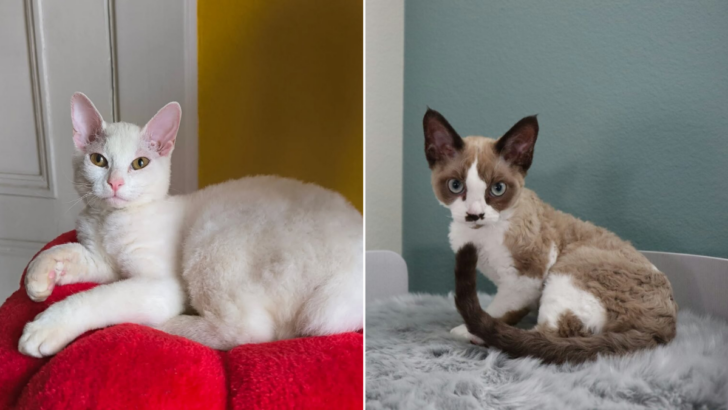Lean bodies? Check. Large ears? Check. Wavy coats? Check. When thinking of Devon Rex vs. Cornish Rex debate, you have to wonder: Is there any difference between these two fluffs? There must be something you’re missing, right?
Well, there is! Although their names are similar, there are many things that set these furbabies apart. Instead of thinking of them as two siblings in the feline world, picture them as cousins.
“But, they’re so similar. How could I possibly set them apart?” That’s true, they are. Both of these kitties are like little tornadoes of adorableness and mischief. Still, their purrsonalities aren’t exactly the same.
Sure, they’re fun and energetic, and they’ll turn your house into their personal playground, but that’s about it. You’ll hardly find a kitty who won’t bring a bit of craziness into your cozy home – that’s why we love them!
If you’re thinking of blessing your life with one of these adorable little rebels, let’s get down to the ultimate Devon Rex vs. Cornish Rex showdown.
What’s the story of the Devon Rex?
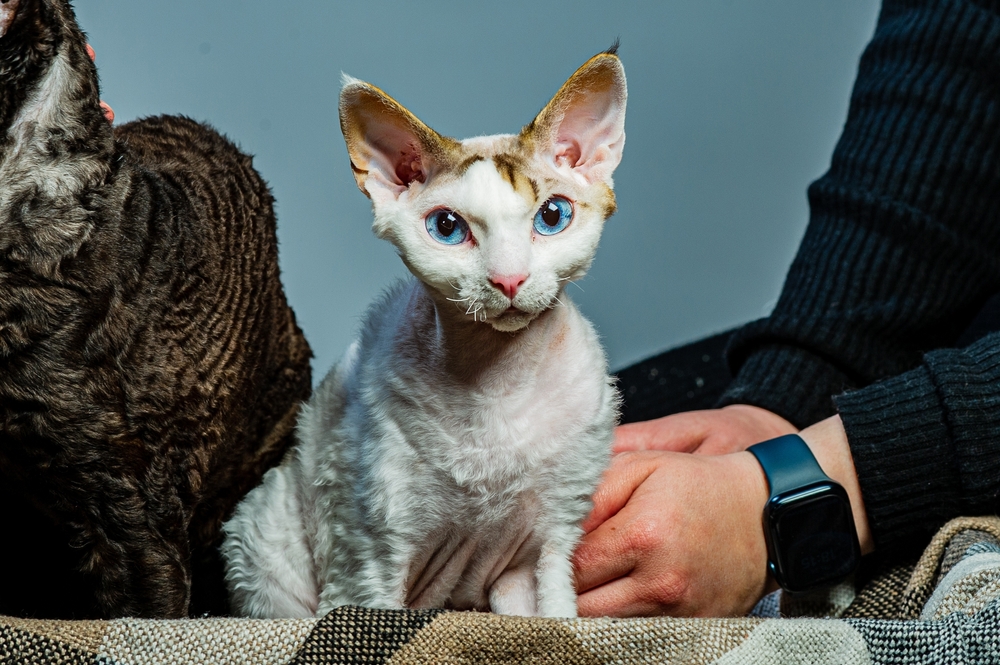
As to the origins of this breed, we don’t have to go too far back in history. Devon Rex has British roots, and it was first recognized by the CFA in 1979. Thanks to the unique genetic mutation of a kitty discovered in Devon, England, we have a beautiful Devon Rex that’s simply impossible to resist.
A breeder named Beryl Cox recognized the uniqueness of the kitty she discovered, so she introduced it to other breeds such as Burmese, Siamese, and more. Thanks to their beautiful traits, Devon Rex turned out to be a healthy and special-looking kitty that quickly gained popularity.
The background of the Cornish Rex
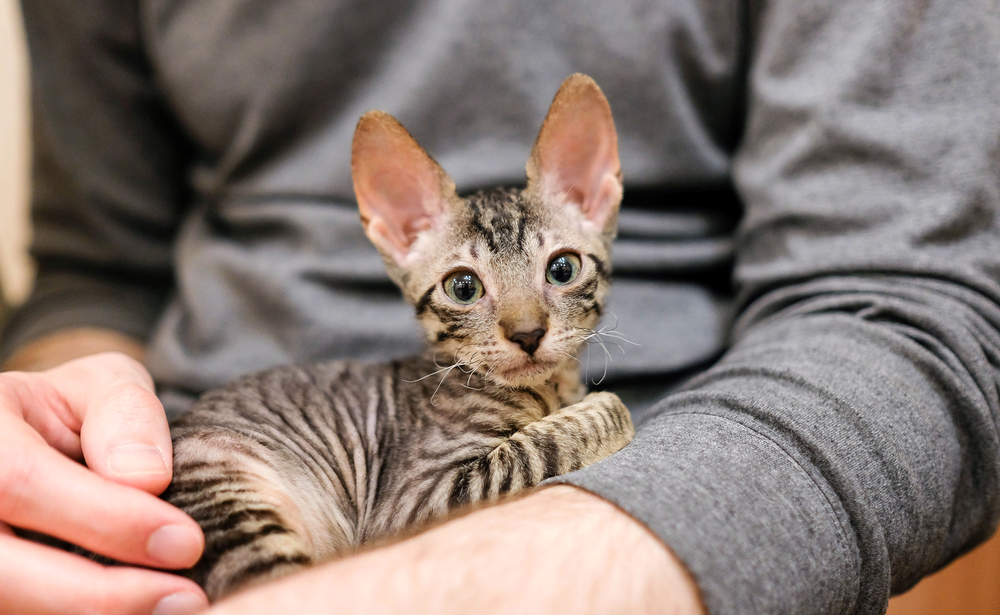
The origin of the Cornish Rex can be traced back to the early 1950s when Nina Ennismore noticed an unusual curly-haired kitten in a litter she found on her farm. She couldn’t ignore this unique mutation, so she decided to breed the kitty with the local fluff.
Luckily, their kittens also had curly coats, and so the first litter of Cornish Rexes was born.
Because of their uniqueness, it comes as no surprise that these kitties started gaining popularity in the 1960s. And they continue to win the hearts of many, even today.
What do these beauties look like?
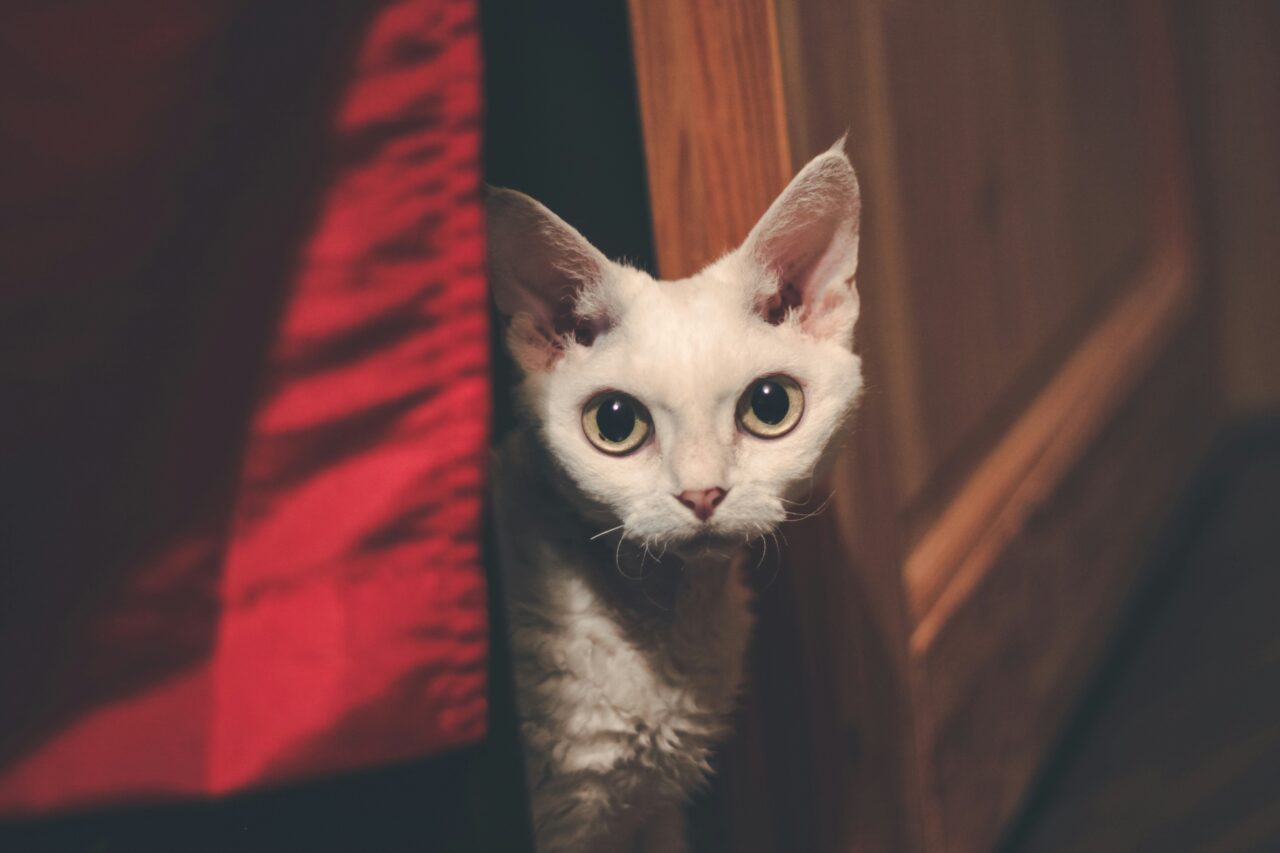
How could anyone resist Devon’s beautiful wavy coat? We know we can’t! These small kitties usually weigh around 6-9 pounds and are around 11 inches in height. The first thing you’ll notice, however, is their irresistible tall ears. They make them seem like your meower is up to no good, and let’s face it, they probably are!
These special kitties come in a variety of colors, including mysterious black, white, cream, cinnamon, red, and seal! It’s impossible not to find your purrfect match, right?
The unique appearance of Cornish Rex
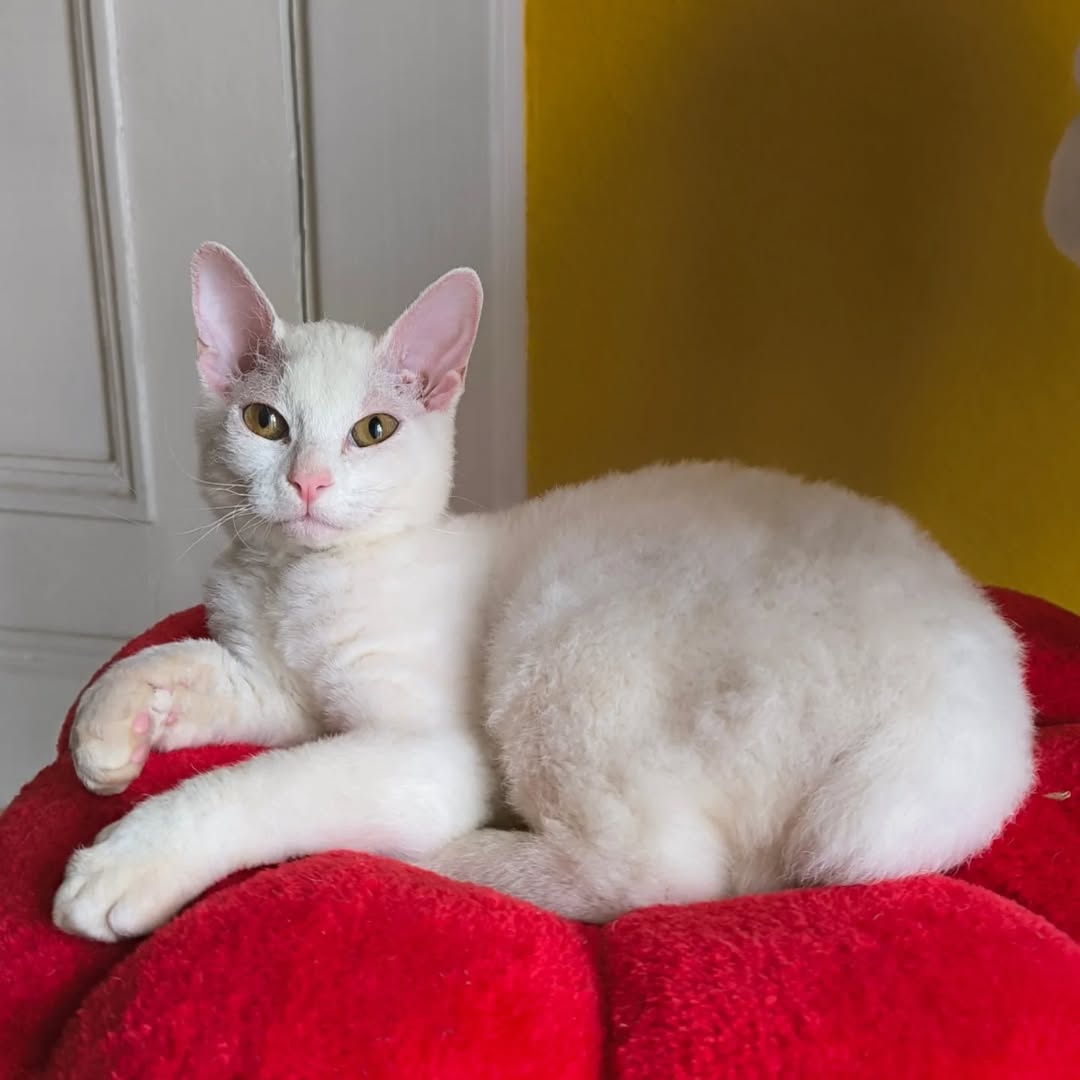
We’re not kitten you, Cornish Rex is one of the most beautiful furballs you’ll lay your eyes on (unless you’re into big, fluffy cats such as Maine Coon). Cornish kitties are reserved for the hearts of those who love lean, muscular, furry companions that won’t take up too much space in their homes.
Well, at least not with their size. There’s no doubt in our minds that your fluff will quickly become the king of your household, but more on that later.
When it comes to the size of Cornish Rex cats, they’re about 10-12 inches in height and weigh around 6-10 pounds. Because they have irresistible little heads, their eyes and ears may appear large – which is absolutely adorable.
Their fur is sensitive, thin, and fine as a feather. Because of this, they’re pretty sensitive to cold weather and they’ll mostly spend the whole winter by your side. Yes, they’re perfect cuddle buddies!
You’ll find them in a variety of colors and patterns, including delicious chocolate, majestic white, and even orange. No matter which one falls in your lap, we guarantee you’ll fall in love with this meow-gnificent feline.
The loving character of Devon Rex
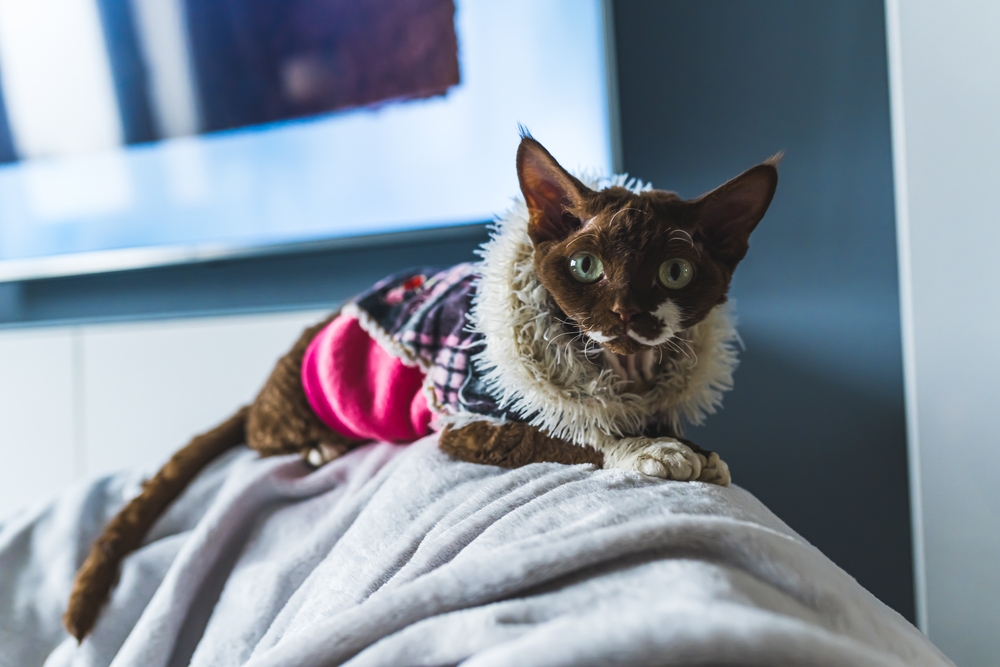
Their unique appearance isn’t the only thing that will make you fall in love with a Devon Rex. Known for their playfulness and energy, you’re bound to have a pawsome time with your little furry buddy.
She’ll be everywhere. If you decide to get this kitten, make sure you’re ready to turn your house into a playground – because that’s exactly what a Devon Rex needs.
These kitties love to jump, climb, and run around like there’s no tomorrow. One thing’s for sure, though: They’re sure to bring a lot of pawsitive energy into your home.
Don’t worry, all of this doesn’t mean she won’t have time for some cuddles with her favorite person. Quite the opposite, actually! These feline babies are very affectionate. Don’t be surprised if, one day, she decides to hang around your neck like a scarf!
Your new best buddy
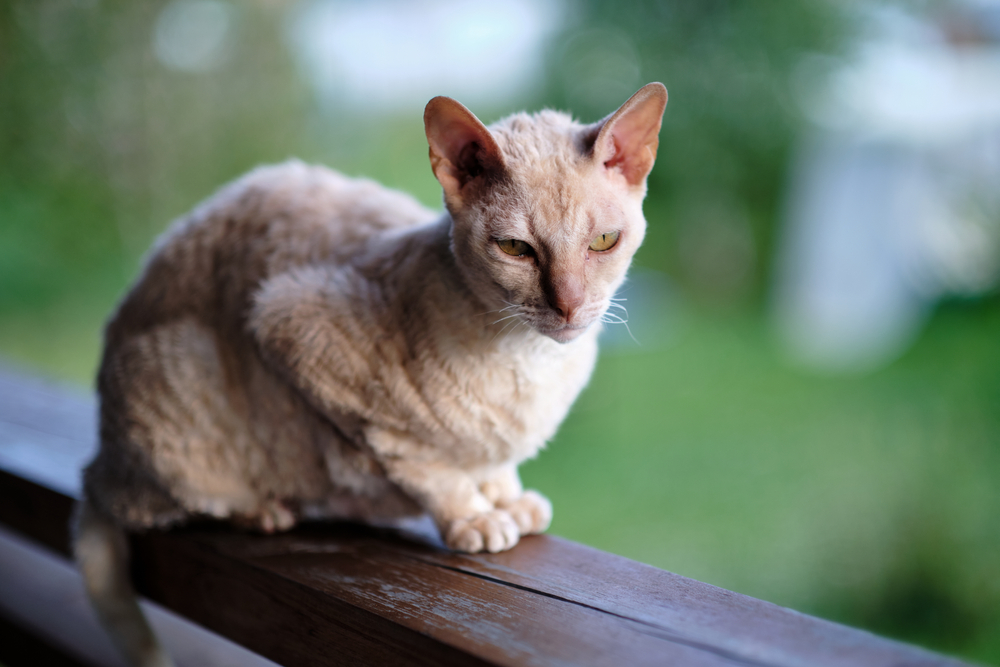
Do you know what makes them everyone’s favorite, though? Their beautiful cattitude that you simply can’t help but fall head over heels with. Yes, they’re active and playful, but Cornish Rexes have a loving side that will make them your new bestie.
They’re always up for a cuddle and spending some quality time with their favorite human – even if it’s simply lazing around the house the whole day. Your Cornish fluff is a happy kitty as long as you’re there.
They’re known for their intelligence, loving nature, and playfulness they carry from their kitten days all through their adulthood. They sound like purrfect feline buddies, don’t they?
How do you take care of a Devon Rex?
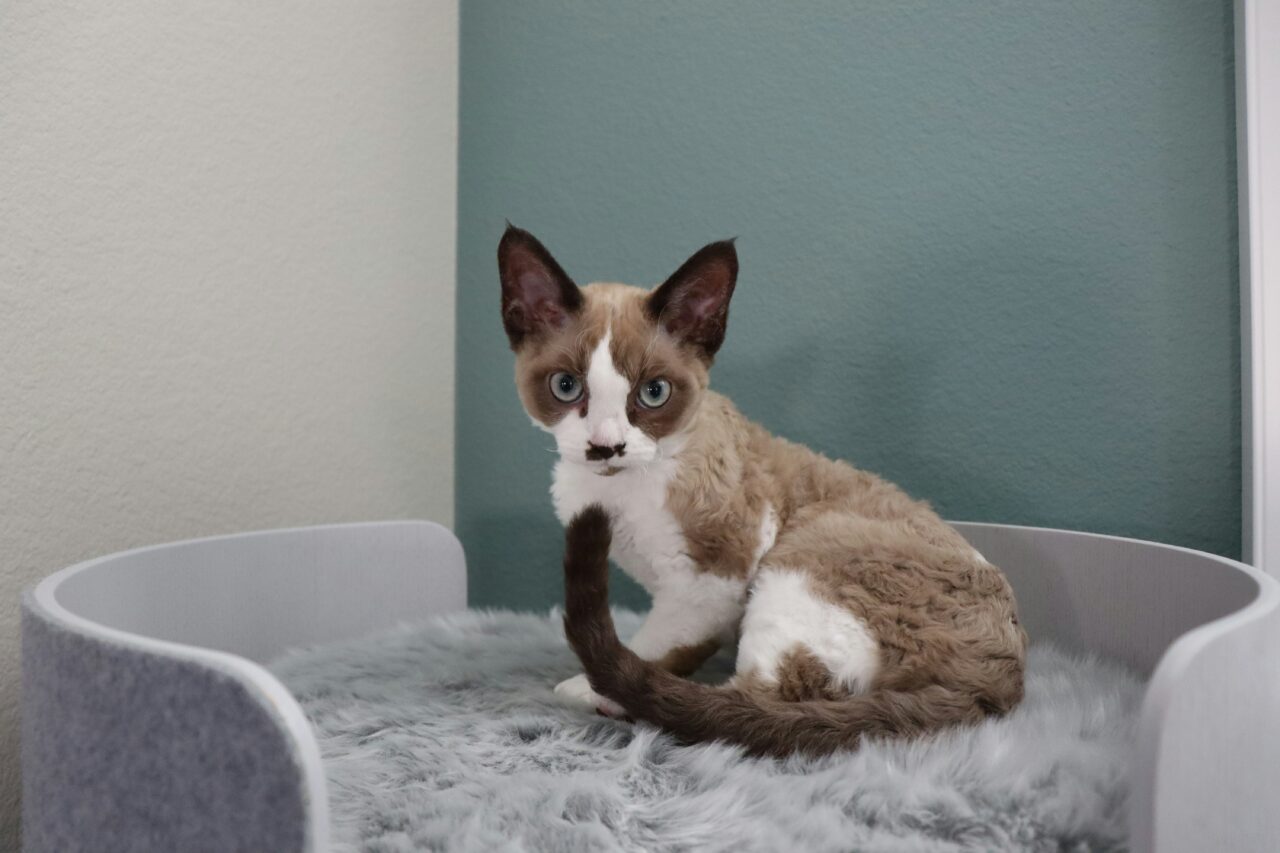
When it comes to grooming, Devon Rex kitties are a dream come true. No excessive shedding, their hair is short, and they’re made for indoor living. A simple weekly brushing session will be enough to keep these feline beauties in tip-top shape.
However, because they have fine hair, they’re very sensitive to cold. Keeping them inside is crucial for keeping these fluffs healthy, but you’ll have to find a way to keep them active and entertained.
They love to play and are great with kids, but they also enjoy spending a quiet evening cuddling you on the couch. It’s the perfect balance!
How do you take care of a Cornish Rex?
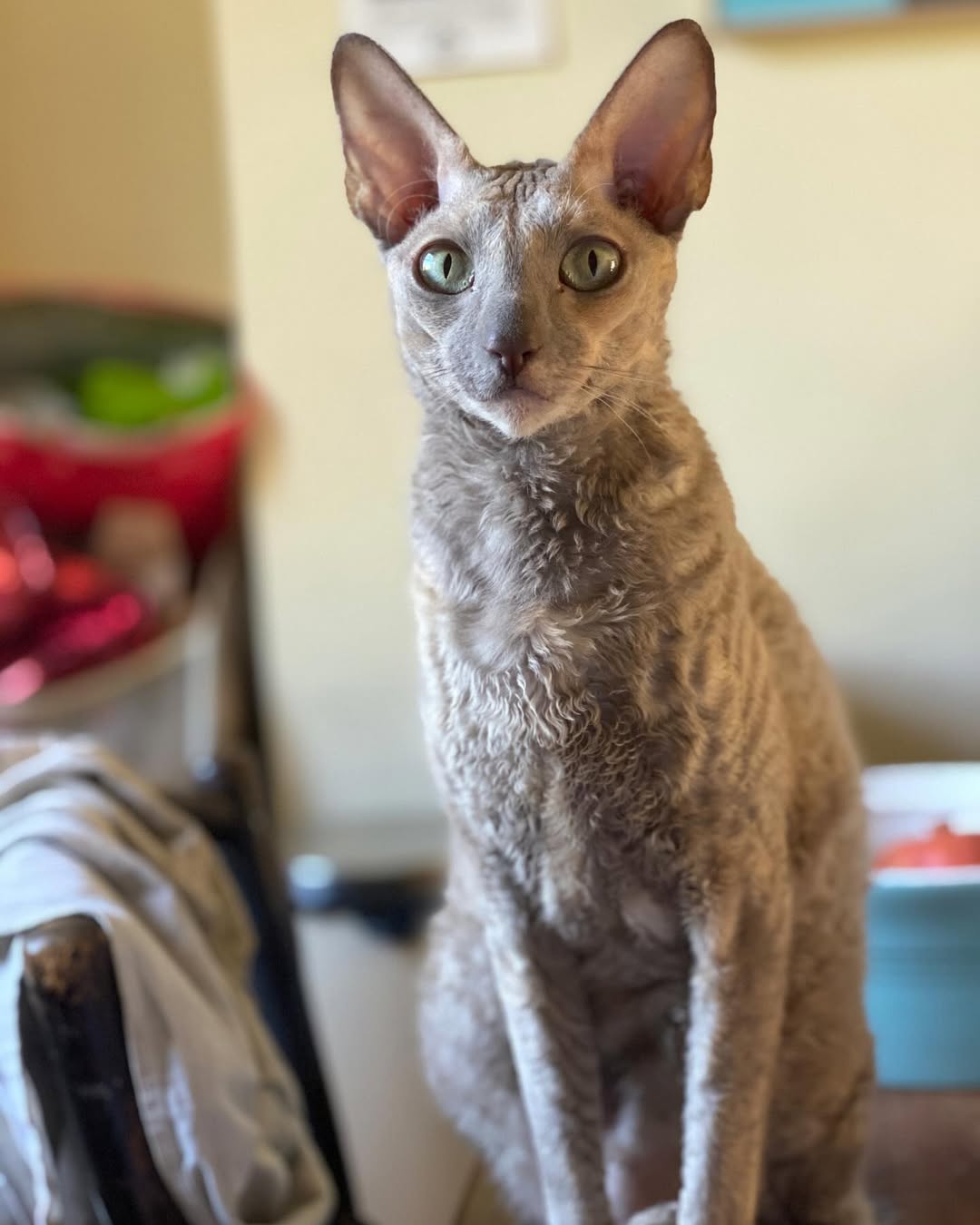
Just as is the case with Devons, Cornish Rex kitties are a breeze when it comes to grooming. They don’t need much time and effort to maintain their beautiful, sleek, and lean appearance. A brush here and there will suffice.
Just like their younger cousin, Cornish cats should also be kept inside because they aren’t made for the cold. Luckily, they’re eager to interact and play with the family, which makes them easy to train. The only thing to pay attention to is to ensure you give your fluff enough opportunities to exercise and play.
Supply her with toys, puzzles, tunnels, and a good old cat tree. She’ll love every bit of her paradise and be happy to stay inside with her favorite humans in the world.
